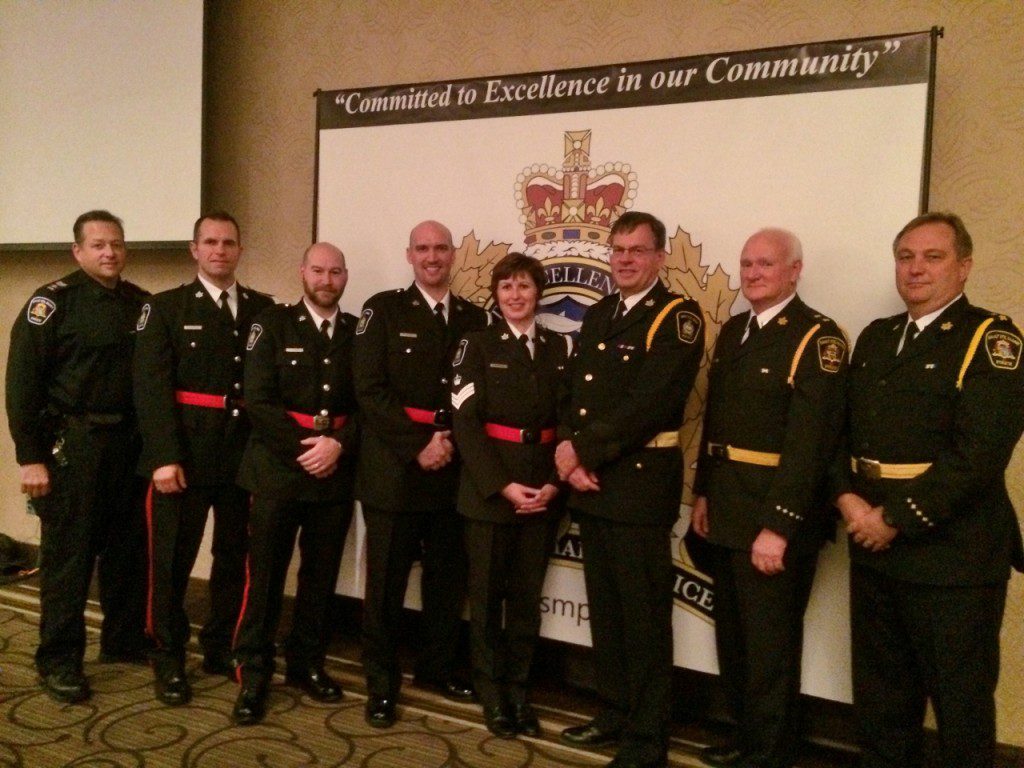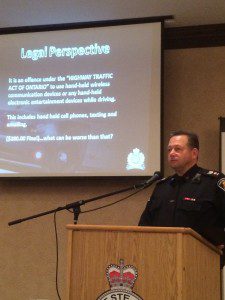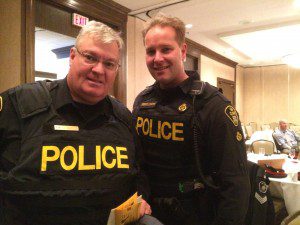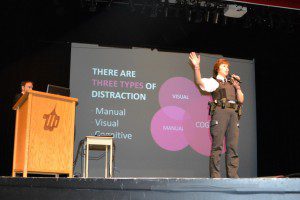
I spent the last two days in beautiful Sault Ste Marie, Ontario, Canada participating in law enforcement and high school distracted driving talks. I was asked to participate by the gracious members of the Sault Ste Marie Police Service as part of their 38th Annual Crime Prevention Summit, a prelude to the upcoming Crime Prevention Week, which runs from November 2nd to the 9th.

This year’s theme at the conference was, “Road Safety..it Begins With You”. Members from the Sault Ste. Marie Police Service, the Ontario Provincial Police, the Royal Canadian Mounted Police and Anishinabek Police Service were in attendance, as well as members from various organizations in Sault Ste. Marie and the District of Algoma. Sault Ste Marie has a population of about 75,000 and 138 police officers. I was impressed with the city and the dedication of the law enforcement officers and other community members locally and from throughout Ontario, who attended the conference.
I was often asked by conference attendees and local media how the distracted driving problem differs in Canada from the United States. From my perspective, the most significant difference is in laws and enforcement. Canada has 14 provinces and all but 1 have both texting and hand-held electronic device bans. (Nunavut, the only province without a ban, is one of the most remote and sparsely settled regions of the world with a population of just 32,000, mostly Inuit, spread over a land area the size of Western Europe). In the U.S. we have only about a dozen states that have both texting and hand-held electronic device bans and we still have about 7 states that have not yet even prohibited texting.
Several Canadian provinces, including British Columbia and Ontario, have or will shortly implement fines of $1,000 for cell phone violations. Penalties in the U.S. where states have enacted texting bans normally range from $100 to $250 with a notable exception of NY where young drivers lose their licenses for 120 days on conviction of texting while driving.
Several Canadian provinces also assess points against drivers convicted of violating hand-held electronic device laws.

Traveling throughout the U.S., especially in the approximate 38 states with just texting bans (no hand held electronic device bans), one often hears from law enforcement that texting bans are nearly impossible to enforce and, as a result, there is little incentive for officers to do so. Many in U.S. law enforcement feel that since holding cell phones in these states to talk, e-mail, access Facebook or a GPS is legal, it is virtually impossible to tell if someone is texting or not. Some officers say that the texting law, without hand-held electronic device bans, is “a joke.”
Recent U.S. studies indicate that texting and hand held cell phone bans are starting to have an effect in reducing crashes. The studies also indicate that with passage of hand held electronic device bans overall cell phone use, even hands-free, is reduced.

Traffic safety experts have maintained for years that in order to reduce crashes and save lives we need legislation, enforcement and education.
We can learn a lot from our friends to the north who, for the most part, are doing much more with respect to stricter laws and enforcement to stem the epidemic of distracted driving than we are. We are happy to be a part of those efforts with our educational program in Ontario (and previously, in British Columbia).
At dinner on our last evening at the Delta Hotel and Conference Center where the Crime Prevention Conference was held, our server, Margie, recognized us from the local news coverage. She was very kind and thanked us for coming and speaking with adults and hundreds of teens at 4 of the high schools. As a special thank you the hotel picked up the cost for our dinner. We were very touched. Dianne and I felt very much welcomed by everyone in the community who we met. We are happy to have made some new friends in Ontario.

Media coverage of the distracted driving events in Sault Ste Marie Ontario, Canada:
Feeling the Pain, Spreading the Message, SooToday.com, Oct. 29, 2014
American lawyer presents distracted driving message at crime prevention seminar, 100.5 Kiss & 104.3 Country, Oct. 29, 2014 (News article as well as audio and video clips from interview)






